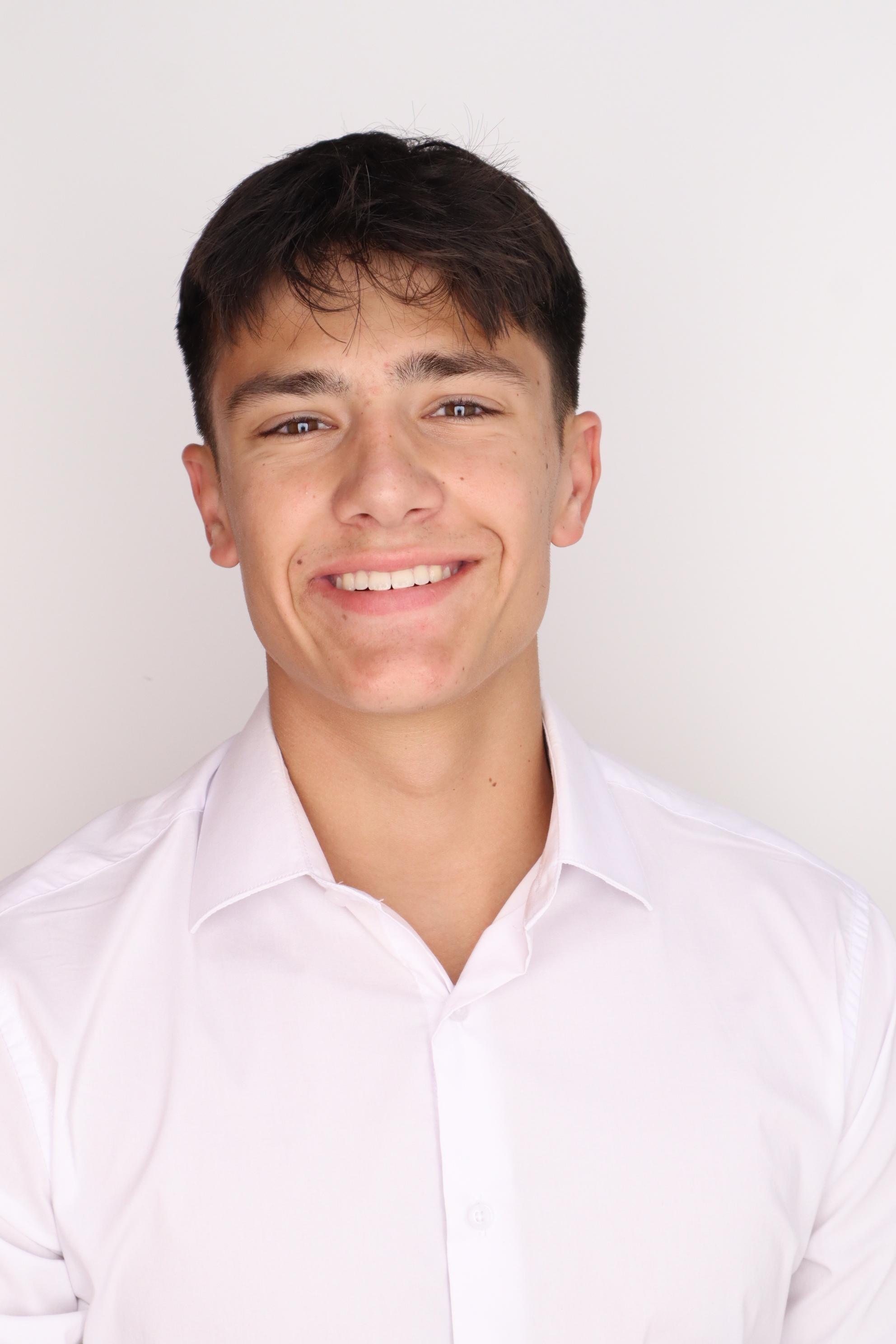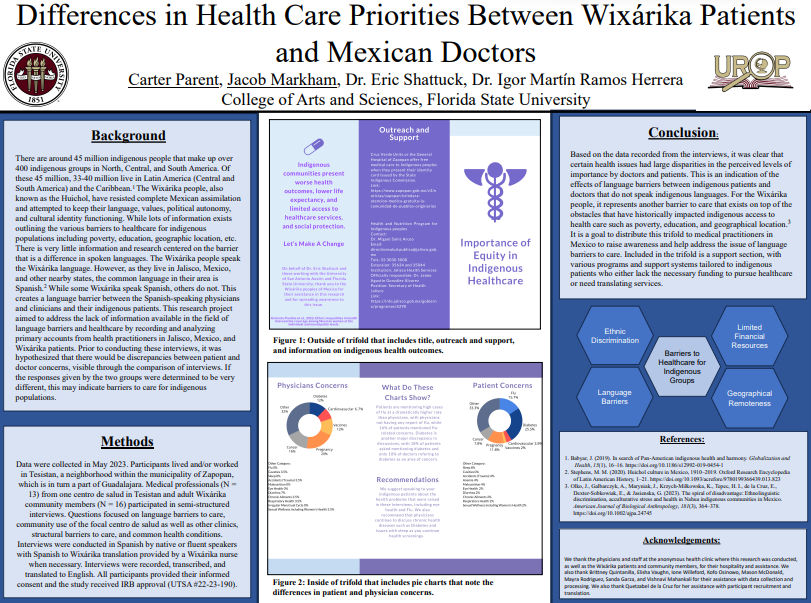Research Symposium
24th annual Undergraduate Research Symposium, April 3, 2024
Carter Parent Poster Session 4: 2:45 pm - 3:45 pm/276

BIO
I am a freshman Biomedical Engineering student from Salem, Oregon. I am a presidential scholar and I am involved in a research project at Florida State University investigating healthcare for the indigenous Wixarika people. I joined this Research project because it struck me as an interesting union of two subjects that interest me greatly: Medicine and Spanish language. I am fluent in Spanish, having spoken it since I was around 6 years old. During this Research Project, I was able to use my Spanish skills to translate patient interviews from Spanish to English and craft a translated version of a trifold to be published for doctors in Mexico. I am extremely proud of my work on this project and have immense gratitude for Dr. Shattuck and the rest of the team for their support.
Differences in Health Care Priorities Between Wixárika Patients and Mexican Doctors
Authors: Carter Parent, Dr. Eric ShattuckStudent Major: Biomedical Engineering
Mentor: Dr. Eric Shattuck
Mentor's Department: Anthropology Mentor's College: College of Arts and Sciences Co-Presenters: Jacob Markham
Abstract
There are around 45 million indigenous people that make up over 400 indigenous groups in North, Central, and South America. Of these 45 million, 33-40 million live in Latin America (Central and South America) and the Caribbean. The Wixarika people, also known as the Huichol, have resisted complete Mexican assimilation and attempted to keep their language, values, political autonomy, and cultural identity functioning. While lots of information exists outlining the various barriers to healthcare for indigenous populations including poverty, education, geographic location, etc. There is very little information and research centered on the barrier that is a difference in spoken languages. The Wixarika people speak the Wixarika language. However, as they live in Jalisco, Mexico, and other nearby states, the common language in their area is Spanish. While some Wixarika speak Spanish, others do not. This creates a language barrier between the Spanish-speaking physicians and clinicians and their indigenous patients. This research project aimed to address the lack of information available in the field of language barriers and healthcare by recording and analyzing primary accounts from health practitioners in Jalisco, Mexico, and Wixarika patients. Prior to conducting these interviews, it was hypothesized that there would be discrepancies between patient and doctor concerns, visible through the comparison of interviews. If the responses given by the two groups were determined to be very different, this may indicate barriers to care for indigenous populations.
Keywords: Indigenous, Healthcare, Spanish

